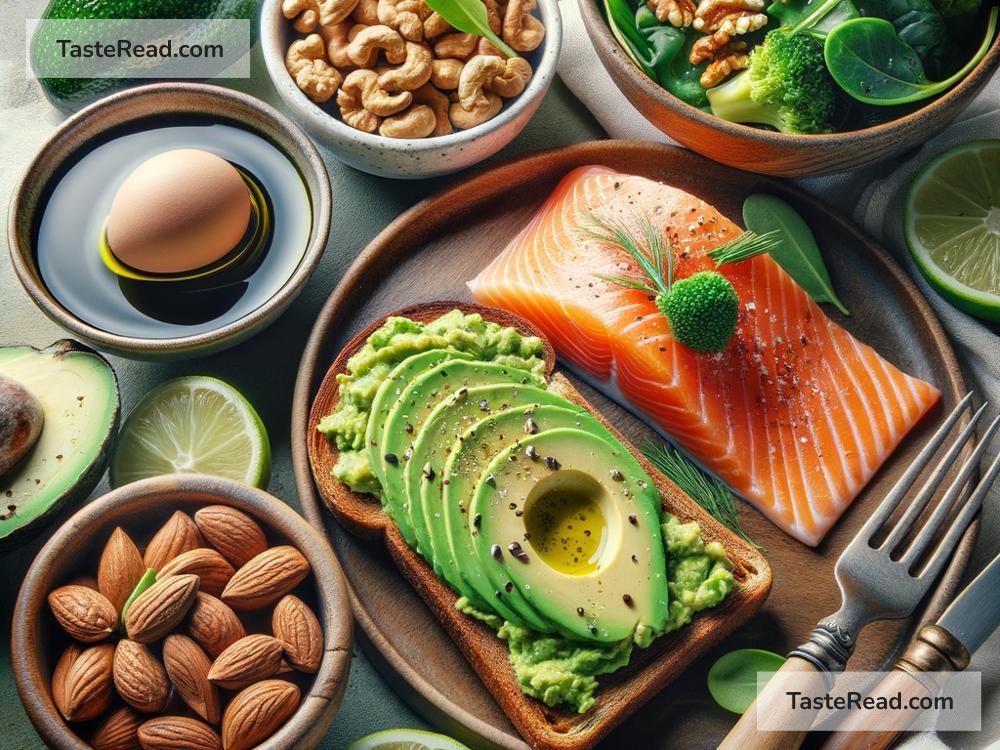The Impact of Dietary Fats on Health
When it comes to food, people often associate the word “fat” with something unhealthy. It’s common to hear phrases like “avoid fatty foods” or “low-fat is better.” However, not all fats are bad for you. In fact, your body needs some fats to work properly! But what are fats exactly? And how do they affect your health? Let’s break it down in simple terms.
What Are Dietary Fats?
Fats are one of the main nutrients your body gets from food, along with carbohydrates and proteins. They provide energy, help your body absorb certain vitamins (like vitamins A, D, E, and K), and are important for your brain, cells, and hormones. In short, fats play an essential role in keeping you healthy.
Dietary fats are found in many foods, both animal-based (like meat, dairy, and fish) and plant-based (like nuts, seeds, and oils). While fats are important, not all fats are created equal. Different types of fats can have different effects on your health, and some types are healthier than others.
Types of Dietary Fats
There are four main types of fats that you’ll find in foods: saturated fats, trans fats, monounsaturated fats, and polyunsaturated fats. Let’s take a closer look at each type.
-
Saturated Fats
Saturated fats are commonly found in animal-based products such as butter, cheese, and fatty cuts of meat. These fats are solid at room temperature—think about how a stick of butter doesn’t melt unless it’s heated.
Too much saturated fat can raise the level of “bad” cholesterol (LDL) in your blood, which is linked to a higher risk of heart disease. That’s why health experts recommend eating them in moderation. But don’t worry—enjoying a little cheese or butter isn’t harmful if your overall diet is balanced. -
Trans Fats
Trans fats are the worst kind of fat for your health. They are artificially created through a process called hydrogenation, which turns liquid oils into solids. They’re often used in processed foods like cookies, cakes, and fried items to improve shelf life and texture.
Trans fats raise “bad” cholesterol (LDL) and lower “good” cholesterol (HDL), making them double trouble for your heart. Eating too many trans fats can increase your risk of heart disease, stroke, and even type 2 diabetes. Many countries have started banning or limiting the use of trans fats in foods, which is a good step toward healthier choices. -
Monounsaturated Fats
Monounsaturated fats are considered “healthy fats.” You can find them in foods like olive oil, avocados, and nuts. These fats are liquid at room temperature and are good for your heart.
Eating foods rich in monounsaturated fats can lower “bad” cholesterol levels and even help reduce the risk of heart disease. Plus, they provide a great source of energy and taste delicious! -
Polyunsaturated Fats
Polyunsaturated fats are another type of healthy fat, and they include omega-3 and omega-6 fatty acids. These fats are found in fish (like salmon and tuna), walnuts, flaxseeds, and sunflower oil. Omega-3 fatty acids, in particular, are known for their anti-inflammatory properties. They can help improve brain health, support heart health, and even reduce the risk of certain diseases.
Like monounsaturated fats, polyunsaturated fats are liquid at room temperature and are an essential part of a healthy diet.
Why Are Fats Important?
Fats are more than just a source of energy—your body relies on them for many critical functions. They protect your organs, keep your body warm, and help your cells function properly. Fats also play a key role in brain health, helping you think, learn, and remember things. Without enough healthy fats in your diet, your body can struggle to perform these functions.
It’s also important to remember that fats make food taste better! They give foods a creamy texture and enhance flavors, making meals satisfying and enjoyable.
How Much Fat Should You Eat?
While fats are essential, they should be eaten in the right amounts. Eating too much fat—especially unhealthy fats—can lead to weight gain and increase your risk of health problems like heart disease. On the other hand, eating too little fat can leave your body without the nutrients it needs to thrive.
Experts suggest that fats should make up about 20-35% of your daily calories. Most of the fats you eat should come from healthy sources like fish, nuts, seeds, and oils, rather than processed or fried foods.
Tips for Eating Fats the Healthy Way
- Choose healthy fats: Focus on monounsaturated and polyunsaturated fats, like those found in avocados, olive oil, fish, and nuts.
- Limit saturated fats: Enjoy foods like butter and cheese occasionally, but avoid eating them in large amounts.
- Avoid trans fats: Check food labels to make sure products don’t contain trans fats or hydrogenated oils.
- Cook wisely: Use oils like olive or avocado oil for cooking instead of butter or lard.
- Balance your meals: Pair healthy fats with protein, fiber, and carbs to create balanced, nutritious meals.
Conclusion
Dietary fats play an important role in your health, but the type of fat you eat makes a big difference. Healthy fats like those found in fish, nuts, and oils can boost your heart and brain health, while unhealthy fats like trans fats can harm you. The key is to make smart choices and eat fats in moderation.
So next time you hear the word “fat,” don’t feel guilty! Remember that fats are an essential part of your diet—just make sure to choose the right type for a happier, healthier you.


